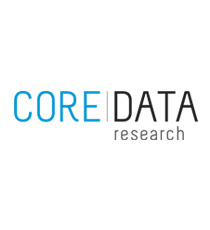An edited version of this article appeared in The West Australian newspaper’s Your Money section on Monday, 20th February, 2017
The next decade is expected to see the biggest intergenerational wealth transfer in Australia’s history, but young West Aussies hoping for a future windfall could be in for a nasty surprise.
The households of Australians aged 65 and over currently own a combined $1.8 trillion, much of which is expected to change hands as the Baby Boomer generation retire.
Younger Australians are the likely beneficiaries, but a combination of economic, legislative and behavioural factors could see these bequests slashed.
Research by CoreData for the Australian Seniors Insurance Agency found nearly one in five WA Baby Boomers is funding their holidays with the kids’ inheritance – or going “SKI-ing”.
Of the 19% who are dipping into the money they’d set aside to bequeath to their children, almost nine in 10 (89%) don’t worry about spending it – with more than half (54%) justifying the decision by the adage “you only live once”.
The future distribution of wealth largely depends on how the Baby Boomer generation manages its nest egg, the extent to which assets are decumulated prior to death and whether these assets are used to meet financial and aged care needs in retirement.
Essentially, most of the net worth of the older demographic is made up of property and superannuation. This figure is heavily dependent on Age Pension and Age Care legislation and the way the family home is treated in the Age Pension asset test.
In Australia, the family home or principal place of residence is excluded from the assets test. Assuming this exemption remains, then it’s possible that young beneficiaries stand to inherit, on average, upwards of $700,000 – with $712,776 being the current median house price across the eight capital cities according to the Real Estate Institute of Australia.
Note that some 80% of retirees own their own home, with those 65 years and over having the highest rate of home ownership at nearly 85%, compared to 67% for all households.
However, if the family home were to be included in the asset test, the average inheritance would drastically decline.
We also know that super balances won’t satisfy most Australians’ retirement needs given longer life expectancy and the rising cost of living. The Association of Superannuation Funds Australia’s retirement standard is $640,000 – well above the average super balance for a household aged 65-69 years ($257,773) or 70-74 years ($223,277).
There are a couple of problems with the assumption of intergenerational wealth transfer in the context of the current economic environment.
When people retire, they rely on savings – either savings put aside for them in the form of deferred taxes by the Government, or savings they’ve accumulated themselves in superannuation.
When the market is performing well, they can live off the income from their savings and investments, but when the market is not – as is the case in WA right now – they need to consume capital.
Western Australia’s state final demand – a measure of the strength of the domestic economy, excluding WA’s $100 billion exports sector – fell 3.8% in the September 2016 quarter, according to figures from the Australian Bureau of Statistics – the worst result for the state since 1989.
A faltering economy will see many Baby Boomers needing to draw down their wealth to maintain a reasonable standard of living in retirement, potentially leaving only the proceeds of the sale of the family home to beneficiaries.
And with the housing market suffering the a post-mining boom economic downturn, this doesn’t bode well. After years of property price growth, Perth’s median house price has fallen from $550,000 to $520,000 in the last three years, taking prices to where they were in early 2013.
Further, the average daily cost for accommodation in residential age care facilities is rising faster than inflation. The Aged Care Financing Authority put this cost at $21,170 per year in 2014-15.
So the question is not so much how much money will transfer from Baby Boomers to their kids, but whether there will be any money left to bequeath.
